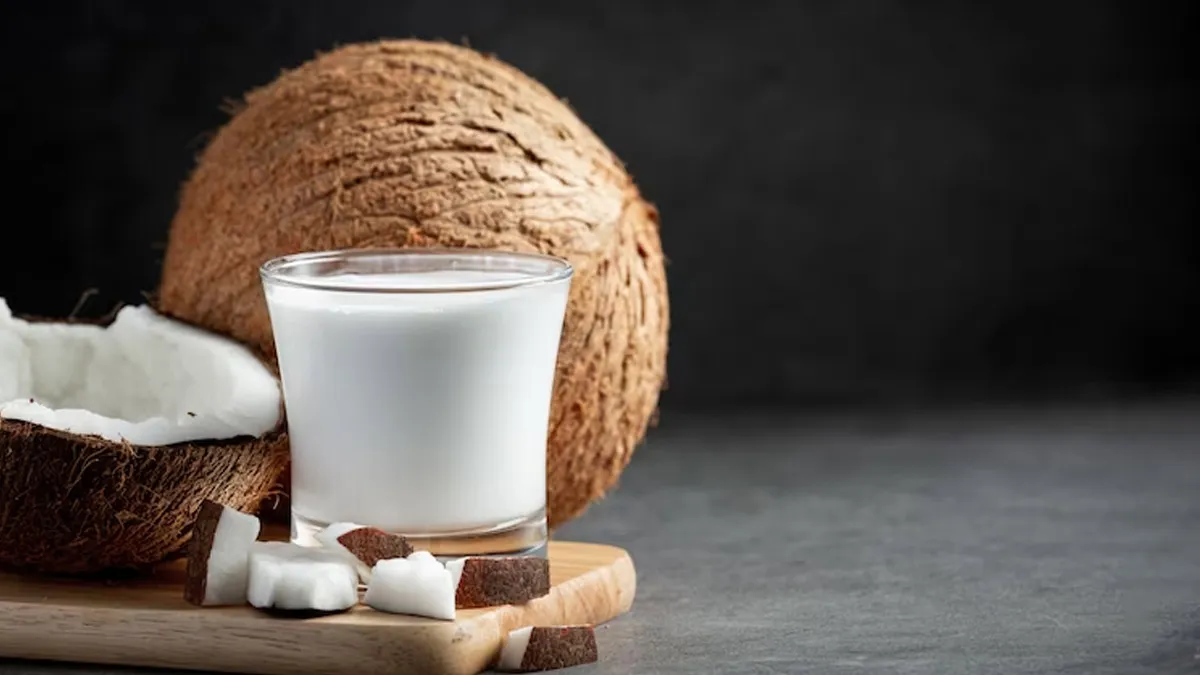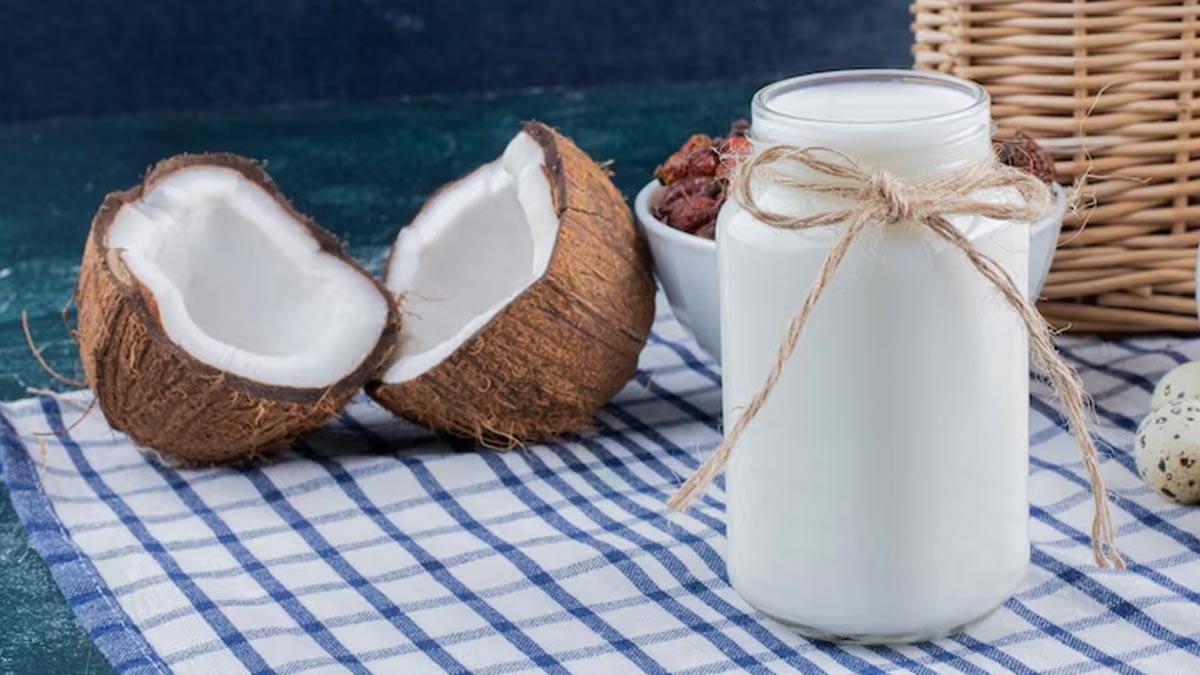
Coconut milk has been a staple in kitchens and coffeehouses for a long time. Known for its creamy, tasty, and vegan texture, coconut milk is a part of many people’s diet. Yet when it comes to heart health and cholesterol, this tropical staple tends to generate controversy. Is coconut milk a good dairy substitute or a sneakily cholesterol-raising fat source?
Table of Content:-
We reached out to our expert, Ms Rashi Chahal, Clinical Nutritionist, Fortis La Femme GK, Support Specialities, Dietetics and Clinical Nutrition, and here is what she shared with us.
Understanding Coconut Milk and Its Composition
Coconut milk is taken out from the meat of mature coconuts and consists of a combination of coconut cream and water. It's high in calories and fat, and especially saturated fat, which makes up about 80–90% of its total fat content. This has been a cause for concern, as high saturated-fat diets are conventionally associated with increased LDL (bad) cholesterol levels and a raised cardiovascular risk.
Also Read: Expert Shares The Best Alternative Of Salt For Blood Pressure Patients

But not all saturated fats behave similarly. Coconut milk includes medium-chain triglycerides (MCTs), which are a form of fat that's metabolised differently than long-chain fatty acids present in animal fats. MCTs are quicker to digest and might be utilized as energy instead of being stored as fat.
What Research Says About Cholesterol and Coconut Milk
The research on impact of coconut milk on cholesterol is inconclusive. A number of studies indicate that coconut foods tend to increase levels of both LDL (bad) and HDL (good) cholesterol, so while it might enhance the total cholesterol level, it can also enhance the ratio of HDL to LDL, an important consideration for heart health.
A small study published in the Journal of Nutrition found that participants consuming coconut milk had higher HDL levels compared to those consuming soy milk. However, the same study noted a mild rise in LDL cholesterol as well. So, while coconut milk might not be as harmful as once believed, it’s not entirely risk-free for those watching their heart health.
How Much Coconut Milk Is Too Much?
Dr Chahal advised restraint. “Having an occasional cup of coconut milk in curries, smoothies, or desserts is not likely to do your cholesterol any damage if your overall diet is balanced and low in other saturated fats. But having it every day or making it your first choice as a milk alternative may raise your cholesterol levels over time,” she said.
Also Read: Sweet Celebrations, Smart Choices: Managing Diabetes During Festive Feasting

If you enjoy the taste, try using light coconut milk (which has roughly half the fat of regular coconut milk) or mixing it with water. Also, whenever you can, choose unsweetened, fortified varieties, since coconut milk at stores sometimes has added sugars or preservatives.
Heart-Friendly Alternatives
For individuals with pre-existing cholesterol problems, plant-based milk alternatives like almond, oat, or soy milk are preferable. They have naturally low saturated fat content and even reduce cholesterol levels because they contain fiber and plant sterols.
Bottomline
Coconut milk isn't necessarily bad for cholesterol, but it contains lots of saturated fat, so it is important to be careful about portions. Have it in moderation, balance it with healthy foods, and check with your physician if you have a history of high cholesterol or heart disease in your family.
Also watch this video
FAQ
1. Will coconut milk increase cholesterol?
Yes, coconut milk will increase both LDL (bad) and HDL (good) cholesterol because of its saturated fat content.2. Is coconut milk better for heart health than dairy milk?
Not really. Though lactose-free, coconut milk contains more saturated fat than low-fat dairy milk.3. How frequently can I safely have coconut milk?
The occasional use, every now and then, once or twice a week in small amounts, is typically acceptable if your diet is otherwise low in saturated fats and balanced.
How we keep this article up to date:
We work with experts and keep a close eye on the latest in health and wellness. Whenever there is a new research or helpful information, we update our articles with accurate and useful advice.
Current Version
Oct 22, 2025 10:45 IST
Published By : Tanya Srivastava